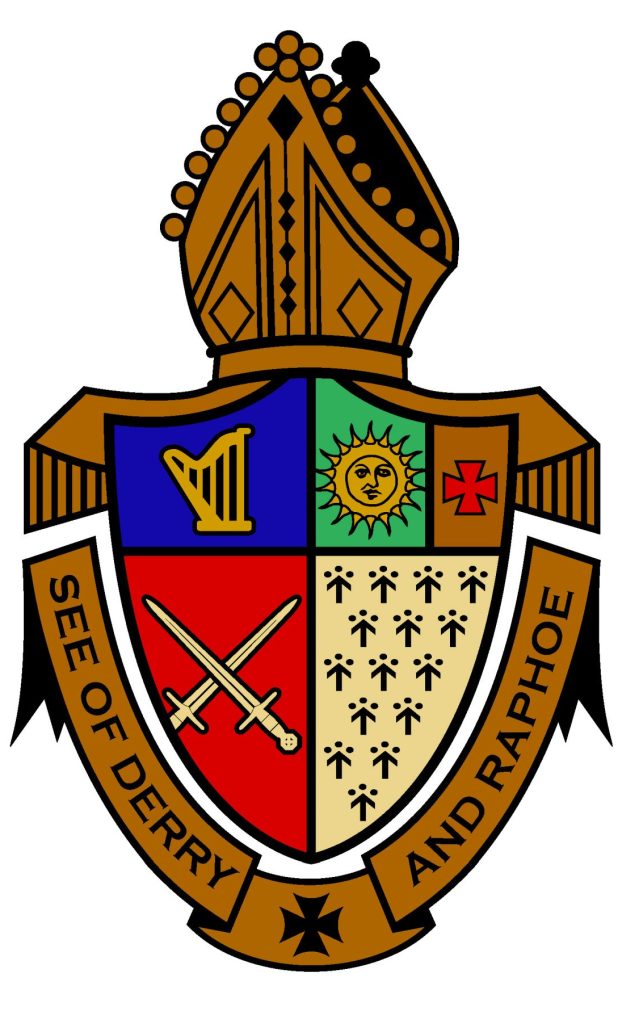Our Diocese


Growing deeper in our relationship to God
Growing closer in our relationships and fellowship with one another
Growing wider by sharing the Good News of the Kingdom of God with everyone, by word and deed
We are the Church of Ireland in the north west of the island. Ours is a cross-border diocese, spanning counties Londonderry, Tyrone and Donegal.
The Diocese of Derry and Raphoe is one of the largest dioceses in the Church of Ireland and its most northerly diocese. We have more than 40 clergy serving almost 30,000 people in 48 parishes, stretching from Killowen (Coleraine) to Ardara and Dunfanaghy to Maghera. We have two cathedrals – St Columb’s in Londonderry and St Eunan’s in Raphoe – and almost 100 churches.
Our Bishop is Rt Rev Andrew Forster, who was consecrated in December 2019. Bishop Andrew is assisted by two archdeacons, Ven David Huss and Ven Robert Miller. The Diocese’s administrative base is the Diocesan Centre in 24 London Street, Londonderry, BT48 6RQ.
The Church of Ireland believes in the equality, within the Body of Christ, of all the baptised. All have a distinctive task or vocation to fulfil, and authority in the Church is entrusted to and exercised on behalf of the whole body.
Every lay member of the Church who is aged 18 or older is entitled to be registered as a member of the general vestry of their parish.
The general vestry elects the select vestry, which is responsible for parish finances and the care of its property. A select vestry includes church wardens (responsible for the control of church services) and glebe wardens (responsible for care and management of church property and land).
Each diocese is overseen by a diocesan synod consisting of the Bishop, the clergy and lay representatives from each parish. The Church of Ireland comprises twelve dioceses, which are grouped within two provinces – each led by an Archbishop.
Diocesan synods meet annually and elect members to the General Synod, which acts as the ‘parliament’ of the church and decides questions of liturgy, church teaching and government.
The General Synod consists of three orders – the bishops, the clergy and the laity – who sit together as two houses: the House of Bishops and the House of Representatives. The Archbishop of Armagh presides at meetings of the General Synod and it elects four Honorary Secretaries – two clerical and two lay – to oversee the running of the Synod and its Standing Committee.
The Representative Church Body (RCB) acts as the charitable trustee and ‘civil service’ of the Church, holding property and administering funds on its behalf. It consists of the archbishops and bishops, lay and clerical members elected by the dioceses, and twelve co–opted members.